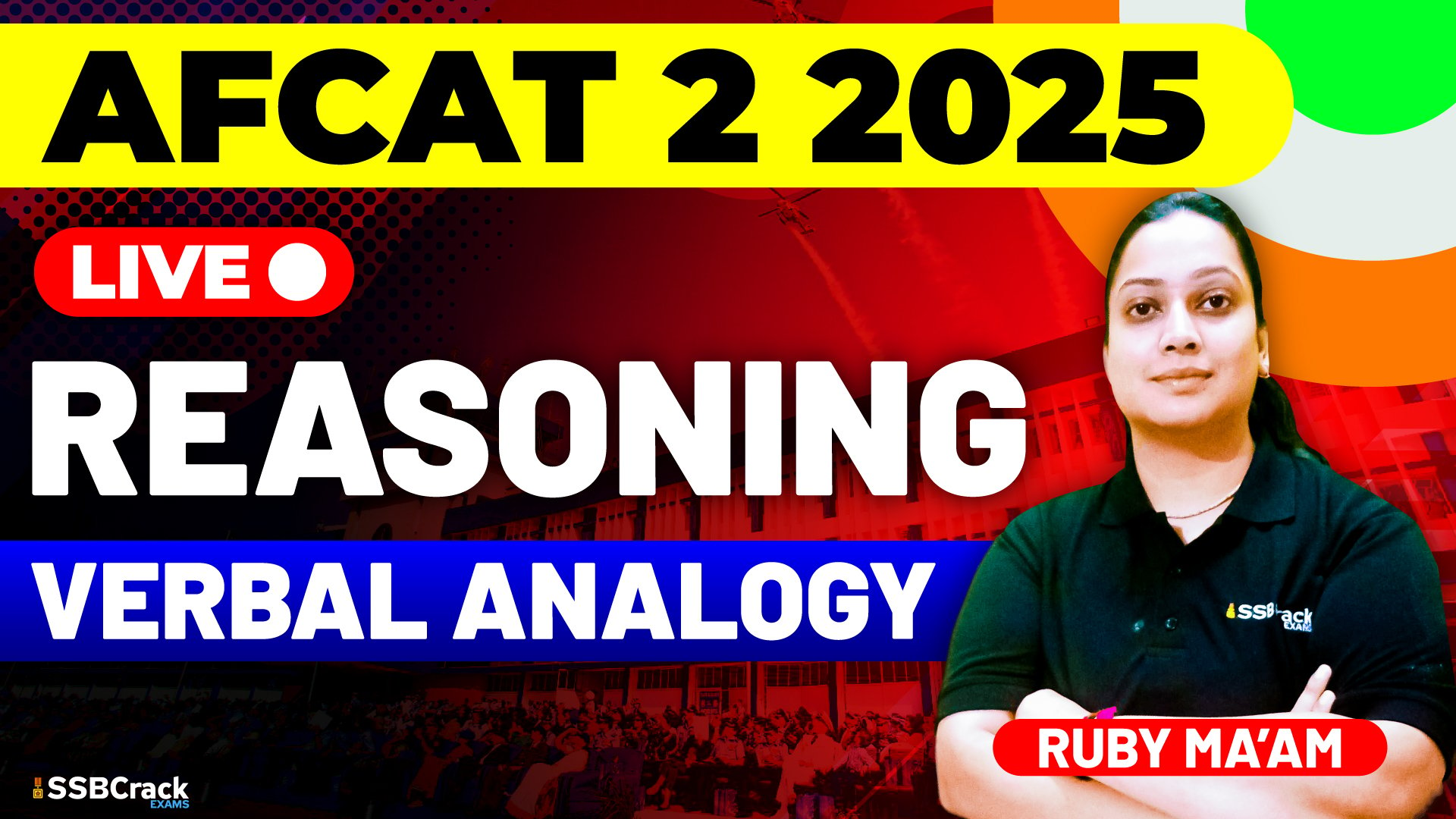When preparing for the Air Force Common Admission Test (AFCAT), aspirants often focus on numerical ability and general awareness while underestimating the role of verbal ability. Among the key components of the verbal section is verbal analogy, a topic that not only tests a candidate’s vocabulary but also their reasoning and analytical skills. Understanding the importance of verbal analogy is crucial for AFCAT aspirants aiming for high scores and ultimately, a successful career in the Indian Air Force.
What is Verbal Analogy?
Verbal analogy is a type of question where a relationship between a pair of words is given, and the candidate must identify a similar relationship between another pair. It requires understanding the logic connecting the first pair and applying that logic to complete or evaluate the second pair. For example:
Example:
Doctor : Hospital :: Teacher : ?
Answer: School
Here, the relationship is that a doctor works in a hospital, so similarly, a teacher works in a school.
Why is Verbal Analogy Important in AFCAT?
1. Tests Logical Reasoning with Language
Verbal analogy questions are not just about knowing the meanings of words; they test your logical reasoning through language. The Indian Air Force looks for individuals who can think critically and connect concepts quickly, and verbal analogies are an effective tool to assess that.
2. Improves Overall Verbal Skills
Preparing for analogies helps improve your vocabulary, comprehension, and understanding of word relationships. This not only boosts your performance in the verbal section but also helps in SSB interviews where good communication skills are essential.
3. High Scoring Potential
Verbal analogy questions are generally less time-consuming and offer a good opportunity to score. With proper preparation and practice, you can solve these questions accurately and quickly, improving your overall AFCAT score.
4. Strengthens Pattern Recognition
A significant skill that the Air Force values is the ability to recognize patterns and sequences, whether in radar signals, flight paths, or problem-solving situations. Verbal analogy trains the mind to see these patterns in a verbal context.
Tips to Master Verbal Analogy
- Build a Strong Vocabulary: Read books, newspapers, and editorials to expose yourself to new words and their usage.
- Understand Different Types of Relationships: These include synonyms, antonyms, part-to-whole, cause-effect, function, characteristic, etc.
- Practice Regularly: Use AFCAT-specific books and online resources to practice a variety of analogy questions.
- Analyze Mistakes: Understand why an answer was wrong to avoid similar mistakes in the future.
- Time Yourself: Practice under timed conditions to improve both speed and accuracy.
Final Thoughts
Success in the AFCAT exam requires a well-rounded preparation strategy, and verbal analogy plays a key role in the verbal ability section. By dedicating time and effort to mastering verbal analogies, you not only enhance your score but also sharpen your reasoning and comprehension—qualities that are indispensable for an officer in the Indian Air Force. So, take verbal analogy seriously, practice smartly, and fly high in your AFCAT journey!







